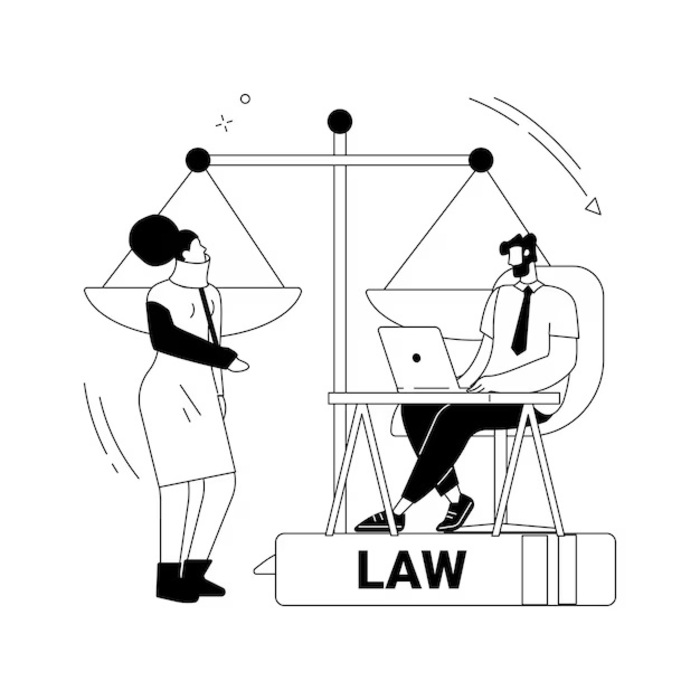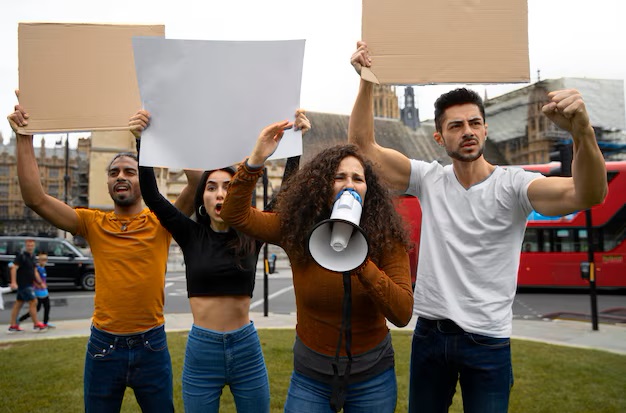The recent resignation of a key figure within a prominent governmental office has sent ripples throughout the regional justice framework. This change ushers in an era filled with uncertainty, prompting a reevaluation of ongoing initiatives and strategies aimed at upholding public safety. As stakeholders assess the ramifications of this decision, both practitioners and observers find themselves contemplating the potential for transformation across various sectors.
As the position awaits a new leader, questions arise regarding the continuity of policies and the influence on collaborative efforts among different entities. Many professionals are eager to discern how this shake-up may catalyze shifts in priorities, resourcing, and the overall approach to pressing societal challenges. The dialogue surrounding this transition reflects the multifaceted nature of governance, where individual leadership plays a crucial role in shaping policies and practices.
The forthcoming months will be critical as the region navigates the aftermath of this notable exit. Individuals within the sector are poised to evaluate not only the immediate consequences but also the long-term effects of this leadership change. Understanding the dynamics at play will be essential for fostering effective partnerships and driving forward the mission of ensuring a secure environment for all citizens.
Lausch’s Departure: Key Reasons Analyzed
The recent exit of a prominent figure in the judicial landscape has raised numerous questions regarding the motivations behind this decision. Understanding the underlying factors can provide valuable insights into the broader ramifications for governance and public policy.
- Career Growth Opportunities: Individuals often seek new horizons to advance their professional journeys. This transition could signify a pursuit of roles that offer different challenges or greater influence.
- Shifts in Political Climate: The evolving dynamics of political support and priorities can heavily influence individual roles within the bureaucratic structure. Changes at the leadership level may encourage re-evaluation of one’s position.
- Personal Circumstances: Family, health, or other personal matters can significantly affect decision-making in professional settings. Balancing personal life with career obligations is often a significant consideration.
- Ongoing Initiatives: The completion or reevaluation of major projects can lead to a natural closure. With specific objectives met, it may be an ideal time to make a change.
- Public Perception: The perceptions held by the community and various stakeholders can influence this kind of decision. A desire for a fresh perspective may also drive a transitional moment.
In conclusion, a multifaceted analysis indicates that several key reasons are at play, each contributing to the current shifts within the organizational framework. Understanding these elements will be critical for assessing future developments and directional changes in this sector.
Implications for Chicago’s Federal Prosecutions
The recent leadership change in the federal prosecutorial office signals a shift that could reverberate throughout the judicial landscape. The transition presents a range of potential consequences that may alter the trajectory of criminal prosecutions and influence the overall justice system in the region.
Potential Challenges
- Continuity of Cases: With a new figure at the helm, ongoing investigations and prosecutions may face disruptions, risking the momentum gained in current cases.
- Policy Changes: A new leader might implement different prosecutorial priorities, which could lead to a reevaluation of cases that were previously deemed important.
- Resource Allocation: The redistribution of resources under new guidance may impact the effectiveness of ongoing operations and task forces.
Opportunities for Reform
- Innovative Approaches: A fresh perspective can foster new strategies to combat crime more efficiently and effectively.
- Community Engagement: Increased collaboration with local organizations could improve relations and foster trust within communities.
- Broader Focus: A shift in priorities may result in addressing different types of crime that have been overlooked in the past.
This transition phase embodies uncertainty but also the chance for transformation. Stakeholders must adapt to the evolving landscape while striving to maintain justice and safety in their surroundings.
Impact on Local Criminal Justice Initiatives
The recent changes in leadership within the prosecutorial office have raised questions about the continuity and effectiveness of various community-based projects aimed at enhancing safety and justice. These initiatives often rely heavily on consistent support from top officials to drive their goals forward and encourage collaboration among different stakeholders.
Potential Shifts in Strategy
With the departure of a key figure, several community programs may experience shifts in focus and funding. Local projects often depend on the vision and priorities set by their leadership, which could lead to:
- Altered funding streams that impact ongoing initiatives.
- Changes in priorities that may deprioritize certain essential community safety measures.
- A potential slowdown in the implementation of new projects aimed at addressing local crime issues.
Community Engagement and Collaboration
Changes at the top may affect partnerships between community organizations, police departments, and the judiciary. Collaborative efforts are crucial for tackling crime, and any disruption could lead to:
- A lack of trust between community members and justice system representatives.
- Reduced participation in community outreach programs.
- Difficulties in addressing systemic issues that require a united front.
Overall, the transition in leadership has significant implications for the trajectory of initiatives aimed at improving justice and safety within the local realm. Stakeholders are encouraged to remain vigilant and proactive in mitigating any negative outcomes that may arise from these changes.
Future of Leadership in U.S. Attorney’s Office
The landscape of leadership within federal prosecutor offices is poised for transformation as new individuals take the helm. This shift brings opportunities for innovation and redefined priorities that could reshape prosecutorial strategies and community engagement. A fresh leadership approach may address contemporary challenges while fostering trust and collaboration between prosecutors and the public.
As the roles evolve, the focus may shift towards more inclusive practices, encouraging diverse perspectives that enhance decision-making processes. Leadership styles will likely adapt to embrace modern tools and methodologies, paving the way for a dynamic and responsive legal framework.
| Potential Leadership Characteristics | Expected Benefits |
|---|---|
| Transparency | Builds public trust and accountability |
| Collaboration | Enhances partnerships with community organizations |
| Diversity | Brings varied viewpoints, improving decision-making |
| Innovation | Addresses modern challenges effectively |
In conclusion, the future of leadership within prosecutor offices is likely to embrace a more holistic approach, emphasizing community-centered practices and fostering an environment where justice is not just meted out but is seen as a collaborative effort. Such a transition could ultimately lead to more effective outcomes and greater public confidence in the judicial system.
Reactions from Legal Experts and Community
The announcement of an early departure from a prominent position in the legal system has sparked various responses from professionals and residents alike. This transition is viewed through a multifaceted lens, reflecting concerns, hopes, and expectations about future developments in the judicial sphere.
- Expressions of Concern: Many practitioners voiced apprehension over potential disruptions in ongoing cases and initiatives.
- Optimistic Perspectives: Some individuals saw this change as an opportunity for new leadership and fresh ideas that could rejuvenate the justice system.
- Calls for Continuity: Experts emphasized the necessity of maintaining stability during the transition to ensure the effectiveness of operations.
Conversations in legal circles have centered on the importance of ensuring that priorities remain aligned with the community’s needs. Several advocates have pointed out that the focus should remain on supporting efforts that promote public trust and safety.
- Feedback from Scholars: Academic professionals have provided insights, analyzing the implications for policy and enforcement.
- Community Voices: Residents have shared their hopes for a proactive approach to addressing crime and fostering collaboration between various sectors.
Overall, the response to this significant change underscores a collective anticipation for a more effective and just future, illustrating the intricate relationship between the legal framework and societal concerns.
Long-term Effects on Law Enforcement Trust
The recent transition in leadership within the prosecutorial sphere raises significant questions regarding the ongoing perception of authority within the community. As key figures shift, the implications for the relationship between the public and those tasked with public safety become increasingly relevant. Trust, once established, can be fragile and is often influenced by changes in management and policy direction.
When individuals at the helm of prosecutorial functions are replaced, it can lead to a reevaluation of the credibility and integrity of the institution as a whole. Public confidence may wane if constituents feel disconnected from new leadership or uncertain about their commitment to justice and transparency. Furthermore, the influence of previous initiatives and priorities may either support or undermine the efforts of incoming leaders to build rapport with the community they serve.
Moreover, the effects on trust are not only immediate but can extend far into the future. Long-lasting relationships between community members and law officials often require consistent engagement and demonstrated accountability. As leadership styles evolve, the challenge becomes balancing expectations and fostering cooperation among the varying stakeholders involved in the justice process.
Ultimately, the ability to cultivate a strong foundation of trust depends on the actions taken by those in positions of power. Collaboration, open communication, and a commitment to transparency will play vital roles in restoring and reinforcing the bonds necessary for effective public safety initiatives to thrive.
Q&A: Chicago us attorney lausch step down early
What are the main reasons for U.S. Attorney Lausch’s early departure?
U.S. Attorney John Lausch announced his decision to step down ahead of the expected transition to a new presidential administration, which is a common occurrence in U.S. Attorneys’ offices. His departure aligns with changes in leadership that tend to follow elections, particularly in politically significant roles like this one. Additionally, Lausch’s tenure was marked by significant accomplishments, including successful prosecutions of violent crime and corruption cases, which may have influenced his decision to leave while on a high note.
How might Lausch’s resignation affect ongoing legal cases in Chicago?
Lausch’s resignation could introduce uncertainty in ongoing legal cases, particularly high-profile ones. New leadership might bring different priorities and strategies, potentially affecting how cases are prosecuted or pursued. However, it’s also possible that many cases will proceed as planned, as assistant U.S. Attorneys and other staff will likely continue their work under acting leadership until a new appointee is confirmed. Stakeholders in the legal community will be closely monitoring how the office adjusts to this leadership transition and whether any shifts in focus occur.
What impact could Lausch’s step down have on law enforcement collaborations in Chicago?
Lausch’s early departure has potential implications for law enforcement collaborations. Under his leadership, there was an emphasis on partnerships between federal, state, and local law enforcement agencies to combat crime effectively. His departure may create some disruption in existing initiatives or task forces that rely on his leadership and vision. However, law enforcement agencies are often accustomed to transitions and may continue to collaborate on ongoing projects until a new U.S. Attorney is in place, which can foster continuity in their crime-fighting efforts.
What is the general sentiment in the legal community regarding Lausch’s tenure?
The legal community in Chicago expresses mixed sentiments about Lausch’s tenure. Many praise his focus on tackling gun violence and organized crime, highlighting successful prosecutions that have made a tangible impact. However, some critics argue that the office’s approach to certain cases may have been too aggressive or lacked a focus on reform. Overall, Lausch leaves a complex legacy that reflects both achievements in crime fighting and ongoing discussions about justice reform within the community.
Who is expected to take over Lausch’s position, and what might their appointment mean for the future of the U.S. Attorney’s Office?
The appointment of Lausch’s successor is likely to be a highly scrutinized process that could indicate the future direction of the U.S. Attorney’s Office. The Biden administration will appoint the new U.S. Attorney, and this individual could bring new priorities, particularly regarding criminal justice reform and community engagement. If chosen from within the office, the new U.S. Attorney may strive to maintain continuity in ongoing projects while possibly implementing changes based on their legal philosophy and community needs. Their appointment will significantly shape the office’s strategies moving forward, especially in the context of Chicago’s unique crime landscape.
What led to US Attorney Lausch stepping down earlier than expected, and what does it mean for the Chicago legal community?
US Attorney Lausch’s early departure was primarily influenced by the transition in the Biden administration, which has brought about changes in leadership across various federal agencies, including the Department of Justice. Lausch, who was appointed by former President Trump, had served as US Attorney since 2017. His stepping down may signal a shift in the focus and priorities of the US Attorney’s office in Chicago, particularly regarding ongoing investigations and prosecutions. This transition could impact local law enforcement agencies, as federal support and collaboration may change. Moreover, Lausch’s departure might affect the morale of the legal community, as he was well-regarded for his efforts in combating violent crime and addressing public corruption in the city. As a result, both law enforcement and legal professionals in Chicago may need to adapt to a new leadership style and strategic direction that aligns with the current administration’s objectives.
What are the details surrounding the resignation of U.S. Attorney John Lausch from the Northern District of Illinois?
John Lausch, the U.S. Attorney for the Northern District of Illinois since 2017, announced he would step down by the end of February or early March 2023. Lausch was nominated by former President Donald Trump and played a key role as the top federal prosecutor in Chicago. His office achieved significant convictions, particularly in cases involving racketeering and bribery, including those tied to former Illinois House Speaker Michael Madigan. In a statement, Lausch said he was proud of his service, which spanned critical periods like the COVID-19 pandemic. Attorney General Merrick Garland confirmed Lausch’s departure, and the office is evaluating candidates to fill the vacancy.
What role did John Lausch play in prosecuting high-profile cases in Chicago during his tenure?
During his tenure as U.S. Attorney for the Northern District of Illinois, John Lausch played a crucial role in prosecuting high-profile cases involving public corruption and organized crime. He led the office in bringing racketeering and bribery charges against former Illinois House Speaker Michael Madigan. Lausch also focused on cases involving illegal gun offenders in Chicago, working to reduce crime and secure convictions. Lausch was kept in his position by both the Trump and Biden administrations, reflecting his bipartisan support. Senators Dick Durbin and Tammy Duckworth praised his work, and Lausch also served on the Attorney General’s Advisory Committee, making significant contributions to federal law enforcement efforts.
What prompted U.S. Attorney John Lausch to step down from his position in early 2023?
John Lausch, the United States Attorney for the Northern District of Illinois, announced his resignation early this year, with his departure set for March 11, 2023. Lausch had served as Chicago’s top federal prosecutor since 2017 and was widely respected for his work on high-profile corruption and criminal cases. According to the Justice Department, Lausch to step down was a personal decision, and he plans to move on by the end of the term to explore opportunities in the private sector. At a press conference, Senator Tammy Duckworth and other officials praised his contributions to Chicago’s legal landscape. The attorney’s office said Lausch’s leadership was pivotal, and an acting attorney will be appointed as President Joe Biden evaluates candidates for the vacant U.S. Attorney post.
What role will Attorney Morris “Sonny” Pasqual play following John Lausch’s resignation as U.S. Attorney in Chicago?
Following John Lausch’s resignation, Attorney Morris “Sonny” Pasqual, the First Assistant U.S. Attorney in the Northern District of Illinois, is expected to serve on an acting basis while the office evaluates candidates for the next U.S. Attorney. Chicago news has reported that Pasqual, who has served as a past Chicago U.S. Attorney, will temporarily step in to maintain continuity until President Biden’s administration selects a permanent replacement. A press conference Thursday is anticipated to address the transition, with the office thanking Lausch for his service. Senators from the Senate Judiciary Committee, including Senate Majority Whip Dick Durbin, are involved in the selection process for the new U.S. Attorney. Patrick Fitzgerald, another former U.S. Attorney, also commended Lausch’s contributions.
What steps will be taken to fill the vacant U.S. Attorney position in Northern Illinois after John Lausch’s resignation?
Following John Lausch’s resignation, Attorney Morris “Sonny” Pasqual is expected to serve as U.S. Attorney on an acting basis while the Justice Department and President Biden’s administration are evaluating candidates for the vacant U.S. Attorney position in Northern Illinois. Lausch, who served as U.S. Attorney, was highly regarded for his leadership, and the attorney’s office said Lausch played a key role in tackling high-profile cases. A statement on U.S. Attorney Lausch’s departure emphasized gratitude, with the office saying, “We thank U.S. Attorney Lausch for his service.” Lausch attended Harvard University and served the office at the behest of Illinois leaders. The president kept an office in place to ensure a smooth transition while the next permanent appointment is finalized.
What is the role of Chicago Alderman in evaluating candidates for vacant U.S. positions?
Chicago Aldermen play a crucial role in evaluating candidates for vacant U.S. positions, particularly when it comes to local representation in federal matters. The process often involves consultations with community members and stakeholders to ensure that the chosen candidates reflect the interests and needs of their constituents. Recently, Lausch served as a prominent figure in this evaluation process, highlighting the importance of thorough consideration before making recommendations. As attorney Morris “Sonny” pointed out, “We thank U.S. officials for their continued support in helping to identify and appoint qualified candidates who align with our community values.” This collaboration between local and federal representatives ensures that the needs of Chicago are adequately represented at the national level.
What role did Chicago Alderman Ed Burke play in the recent case involving Attorney Morris “Sonny” Lausch?
Chicago Alderman Ed Burke was implicated in the case where Attorney Morris “Sonny” Lausch was appointed to serve in a capacity to oversee significant investigations. Lausch gave the U.S. Attorney’s Office insight into various operations, emphasizing his commitment to transparency and accountability. In a statement, “we thank U.S. officials for their support in ensuring justice prevails in our community.”









